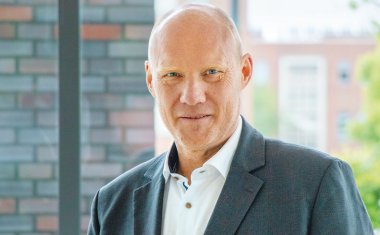Interview with Prof. Gerd Neubeck: The Security Policy of the Deutsche Bahn
The German railway has evolved from what was once a national monopoly into a leading European provider of mobility services. Approximately 30,000 passengers and 5,000 freight train...
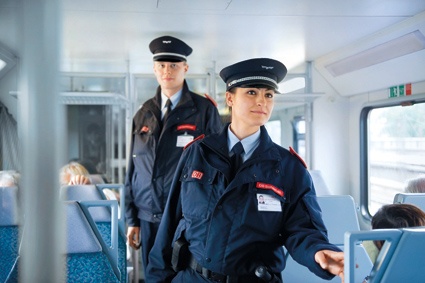
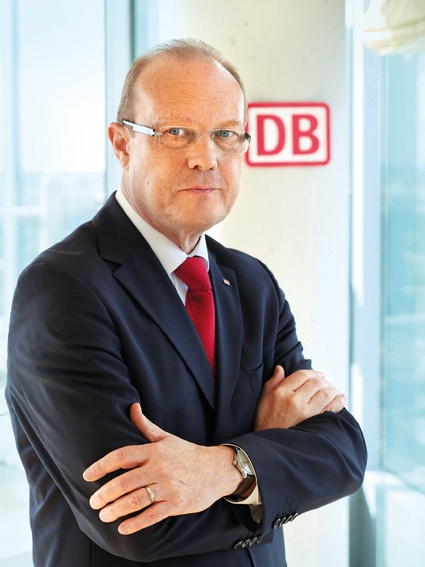
The German railway has evolved from what was once a national monopoly into a leading European provider of mobility services. Approximately 30,000 passengers and 5,000 freight trains are in daily use, about 7.4 million passengers are transported every day in Germany and since the acquisition of Arriva in 2010, this figure has risen by the 2 million passengers who are transported in eleven different European countries. Our scientific editor, Heiner Jerofsky, spoke with Prof. Gerd Neubeck, Head of Security at DB, talks about the security policy operated by Deutsche Bahn.
GIT SECURITY: Professor Neubeck, you are a lawyer, you were the Vice President of the Police, judge, state prosecutor and honorary chairman of the German Forum for Crime Prevention (DFK). Can you briefly describe to our readers your current range of responsibilities at Deutsche Bahn AG and the DFK?
Prof. Gerd Neubeck: As Head of Security for the DB Group, I am mainly responsible for the security of our customers and employees. Our core task is to adapt the structures and processes of the DB Group in line with ever-changing security requirements. Of course, the focus is on our transport services in Germany. However, it should be remembered that DB has almost 300,000 employees in 130 countries around the world. Therefore, it is the task of our Situation Centre to monitor not only the situation in Germany, but also to monitor circumstances of relevance to security in other countries and to identify possible effects on the activities of the DB Group.
Taking advantage of all the opportunities available for prevention is the task of the foundation German Forum for Crime Prevention (DFK). In order to effectively combat crime and not to allow risks to arise in the first place is a concern for the whole of society and involves the state, businesses and every individual. I accepted the post of chairman of the DFK in or- The German railway has evolved from what was once a national monopoly into a leading European provider of mobility services. Approximately 30,000 passengers and 5,000 freight trains are in daily use, about 7.4 million passengers are transported every day in Germany and since the acquisition of Arriva in 2010, this figure has risen by the 2 million passengers who are transported in eleven different European countries. Our scientific editor, Heiner Jerofsky, spoke with Prof. Gerd Neubeck, Head of Security at DB, talks about the security policy operated by Deutsche Bahn. der to take a robust stance against violence and crime and to give a signal for social responsibility. I want to make it clear that for the DB Group, prevention plays a key role and we actively promote the topic publicly.
How would you define your most important goals and current security policy for the group?
Prof. Gerd Neubeck: Deutsche Bahn has a very special responsibility towards the nearly 3 billion passengers who travel with us annually. We want passengers and station visitors to be not only objectively safe, but for them to also feel comfortable in trains and stations. The spectrum of our security policy therefore encompasses risk prevention, the safe running of rail operations at major events and the enforcement of our in-house regulations. The requirements demanded of security organisation and security systems are steadily increasing. In cooperation with the police forces of the federal and state governments, we compare the tasks and objectives of the security organisations.
The public demand for more security staff and more video surveillance, to name just two examples, shapes our security policy just as much as technological advances in the use of security technology. Certainly, we cannot always meet every demand and wish. However, we are certain that we do what we can with the highest degree of responsibility. A current example of this is the increased presence of our security staff at large and medium-sized stations. It is at these places that witness the coming and going of many people, that our staff can nip any disturbances in the bud when they are directly on site. This creates peace and order at the station and maintains a more pleasant environment for everyone. Security for our customers and staff has always been a top priority.
It is extremely important, both for passengers and the image of train travel, that passengers have relaxed and safe journeys. What does Deutsche Bahn do make this happen? Do you also use your own security staff on your lines?
Prof. Gerd Neubeck: DB invests around 160 million euros per year in security. Our security personnel, numbering around 3,700 staff, remain the most important pillar of our security policy. Because security experts agree that only the presence of staff ensures sustainable effects. In particular, the presence of staff gives passengers a greater feeling of security. Our security staff are supported in their work by 3,000 administrative staff at stations, 4,800 inspectors on suburban routes and 4,000 inspectors on long-distance routes - that means that Deutsche Bahn employees have a huge presence. However, direct intervention does not make sense in all cases. We are also committed to the protection of our employees. We expect our employees to prevent conflicts and disputes in advance. If this fails, than it remains for DB staff to quickly get help. For this, we give our employees training in de-escalation and selfprotection. In addition to the patrol teams and their presence in stations and on trains, we also have special Response Teams, that we specifically deploy on railway lines to deal with nonferrous metal thieves and in depots to ward off graffiti sprayers, for example.
The security in railway stations, the majority of which nowadays are modern shopping centres, is just as important for passengers as well as business owners. How important is video surveillance and how do you proceed against those who do not play by the rules and disrupt order in stations?
Prof. Gerd Neubeck: Video technology is one of many elements that make up our security policy. The optimum combination of security staff and security technology is crucial for increasing the feeling of security of our customers and employees. For DB, video technology serves primarily to observe and monitor operations. This means that we usually want to see live images to identify when a platform is overcrowded or how many people are waiting on a station concourse. The federal police can also monitor these live images. It also the task of the federal police to specify where images are to be captured for the purposes of security or law enforcement. For us, however, one thing is clear: CCTV is not a panacea. As part of the security policy, video technology is useful when images can be continuously monitored and then a response team can be quickly deployed to intervene.
In large and medium-sized stations, over the last six months we have doubled or tripled the presence of security staff. Even though Deutsche Bahn is safe from an objective viewpoint, we target more specifically trouble-makers who do not follow the rules and disrupt order in stations. Which offences do you worry about the most and what is the extent of damages?
Prof. Gerd Neubeck: Deutsche Bahn is an open system and therefore part of the public space - almost a mirror image of society. All those conflicts that take place in public spaces and on the streets also take place on platforms and in trains. What strikes us is the increasing number of acts of brutality in everyday situations. Whether it is on Saturday night when passengers are returning from a night out, when passengers are reminded of the existing smoking ban in the stations or when the ticket inspector comes round: increasingly, people will spit, punch and kick without warning. In this respect, we have considerable concerns about the approx.1,200 attacks on our employees every year. Unfortunately, the number of break-ins on ticket machines has also increased. With 560 incidents in 2013, this is an increase of 20%!
And this is especially annoying for us: damage to property is usually much greater than any money that is recovered. Thus, an automated machine costs around 30,000 euros, whereas the amount of money contained in it is only a fraction of the cost. We empty the machine now more often, intensify patrolling and monitoring and have installed colour cartridges that render the money useless if obtained by force.
In other areas of crime, such as vandalism, graffiti or non-ferrous metal theft, we are seeing an encouraging decline. By working closely with the federal police, increasing the presence of our own employees, as well as cooperation with, e.g., metal merchants and the use of synthetic DNA on metal parts, we were able to reduce the number of non-ferrous metal thefts by around 40%. However, vandalism still costs us 30 million each year. Money that we would prefer to use for the benefit of our customers rather than to clean up damage. In our prevention work in schools we also show that, e.g. graffiti is not a trivial offence. Even if the perpetrators are minors at the time and have no income, we can still claim compensation under civil-law 30 years after the crime. In addition, many aerosol-sprayers underestimate the danger of passing trains or electric catenary. In this way, there are repeated incidents of young people being injured or even killed.
How would you describe your collaboration with the federal and state police forces and the partnership that has been agreed?
Prof. Gerd Neubeck: The responsibility for security and law enforcement in the railway sector lies with the federal police force. Our primary concerns are compliance with Deutsche Bahn‘s regulations and conditions of carriage, as well as having a presence in everyday situations and during major events. The core of our lawand- order partnership is the Rail Security Centre, where railway staff and police officers monitor the current situation around-the-clock and jointly make decisions about events and incidents. Working groups with representatives from Deutsche Bahn, the federal police force and state police departments regularly deal with key issues such as prevention, intervention plans for major events or the use of security technology. In practice, our security staff to sit in the federal police and vice versa. There are joint exercises and training, and even trainees from the police and Deutsche Bahn meet with each other in order to maintain contact from the very beginning.
How do you train your security staff? Do you also use external security providers and what qualifications must they have?
Prof. Gerd Neubeck: The basic requirement for private security work in public is to hold a certificate of proficiency in accordance with § 34a of the German Trade Regulations. This certificate is a minimum qualification for work as a security officer on the railways. In many cases, we deliberately take on employees who have previously worked as train drivers or dispatchers. These employees bring with them extensive experience and technical skills . However, DB has also been very successful in training its own security staff, primarily in the area of the law and order service. In addition to their basic qualifications, all security personnel receive 48 hours of training - i.e. six working days - a year as part of a further training policy.
We are able to provide the majority of the security services required using our own personnel. For peak periods, special events or raids, we call in the assistance of qualified service providers. All service providers who work on behalf of DB must of course comply with the minimum qualifications and are also governed by the rules on further training and guidelines on remuneration. We make sure of this by means of corresponding contracts and consistent reviews.
How would you assess the security of freight logistics? Are there statistics on the numbers of incidents and extent of damages? Is this solely the responsibility of the federal police?
Prof. Gerd Neubeck: The railway system is still the most secure system for the transport of goods. Hazardous goods travel by rail with maximum security. The loss of cargo is very rare in comparison with the volume transported. Nevertheless, third-party attacks on rail operations, such as putting obstacles in the way, as well as damage caused to rolling stock or the theft of freight cannot always be completely prevented. We analyse the incidents and then optimise our protection measures. This may be in the form of technical monitoring or the deployment of staff in hotspots. We also participate in the development of technical systems for safeguarding freight transport by rail and cooperate with railway companies, freight customers and authorities, nationally and internationally.
Increasingly, synthetic DNA is being used in order to trace the numerous thefts of non-ferrous metal and also as a preventive measure. What experiences have you had with this?
Prof. Gerd Neubeck: Synthetic DNA is just one way in the fight against metal crime. Deutsche Bahn has been gradually identifying its facilities using synthetic DNA. This substance is invisible to the naked eye and can only be seen under a special UV light. A single DNA molecule is sufficient to identify stolen cable and thus to prove a crime. The fluid also contains microscopically small metal plates which permit precise identification of a cable. Therefore, by touching a cable, the perpetrator runs the risk of himself being ‘contaminated' by it. The DNA traces remain detectable long term. Police or metal dealers are involved in the project and can ‘decode' the artificial DNA. Meanwhile, other companies are using this labelling technology to protect themselves against metal thefts. However, the fact remains that synthetic DNA is just one piece of the puzzle in the fight against metal theft. Where it is technically possible, we will replace non-ferrous metal parts with parts from a more favourable material.
How successful have you been against ticket fraud?
Prof. Gerd Neubeck: Here we make a distinction between two lines of attack. Firstly, the forgery of tickets, some tickets forged on real paper that has been stolen, some tickets being a complete forgery. The best protection against this practice is to provide train crew with the training to properly evaluate passenger tickets, even non-German tickets. For this reason, we are in constant contact with other European train operators and continually focus on the security features of train tickets as well as the printing processes.
Once hot spots become known, we confront the perpetrators with our own staff and the police, sometimes directly in the station or on the train. Last year there were a number of successful investigations. The other area of crime is fraud with credit cards and bank cards. Unfortunately, this is a general issue of our time, with an increasing trend - even within DB. Behind this type of fraud you often find gangs and offenders with a highly professional approach. We give our customers the clear message: DB tickets are only available from DB or outlets that have been licensed by DB.
Anyone offering larger quantities of cheap tickets on the Internet or mentions corporate or wholesale discounts is cheating. The reason is that these discounts are not for resellers! The Federal Police has set up a Special Committee on Computer Fraud, which mainly deals with credit card fraud with online tickets and can now boast considerable success. But with all due respect, even when investigations are successful, you‘re still only second best. Our goal is to put a stop scammers and not even allow these crimes to take place. Currently, therefore, our focus is on further developing the payment systems with additional security features.
What is the total package of interventions, policies and preventive measures that you have in place for the subject of security?
Prof. Gerd Neubeck: Our security strategy is based on selected prevention campaigns and projects. Thus, DB and DFK are both involved in preventive programmes and there is the ‘fair player' project, to name two examples. We support the development of social skills in schools, so that children and adolescents may respond more appropriately to violence and bullying situations.
Additionally, we are working on ad hoc and event-related prevention policies and awareness campaigns. In this way, we can raise the awareness of customers and employees regarding the theft of bags and hand luggage or request that special attention is paid to unattended items in trains and stations.
Thank you for the interview.
most read

Is Your Venue Ready for Martyn’s Law?
Martyn’s Law demands stronger security by 2027. Is your venue prepared to protect and respond?

Integrated and Futureproof: Traka’s Next Chapter
Interview with Stefni Oliver on Traka’s Vision for the Future

When the Internet stumbles: Why DNS is important
When DNS fails, the internet stumbles-AWS outage proves resilience and redundancy are vital for digital trust
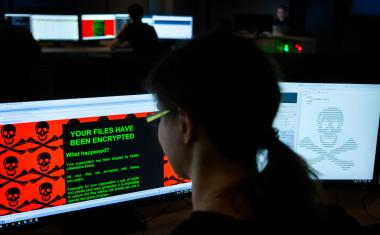
Training at Fraunhofer SIT: Strengthening resilience against cyber attacks
Knowledge in cyber security is evolving rapidly - continuous training is therefore important.
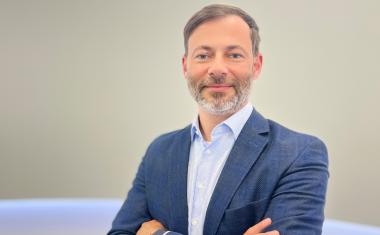
Airbus Defence and Space: Security as a strategic pillar of Europe's defense capability
Airbus Defence and Space protects sites, technologies and employees with modern security and cyber solutions - strengthening Europe's resilience in uncertain times


